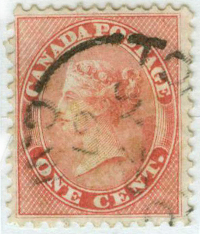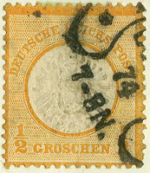
Discussion - Member to Member Sales - Research Center

Discussion - Member to Member Sales - Research Center


I have seen no information (still) on how many employees Karl Hennig had during the Third Reich era. I can't believe given all the frankings and cancels from various locations around the occupied territories that this was a one or two man operation.
Bruce

Login to Like
this post
Well if you are interested in the occupation of the Channel Islands you have to read this :
https://stampaday.wordpress.com/2017/03/16/jersey-under-german-occupation-n8-1943/
The "famous" Karl Hennig covers were mostly used to get money in the bank of Mr Hennig and nothing else.
All of these covers never were posted through the official route.
(Modified by Moderator on 2019-08-07 11:37:40)

Login to Like
this post

07:24:37pm

So in addition to the Guernsey and Jersey stamps similar the example shown above, it appears from your post that German stamps were also valid in the Channel Islands. Were all German stamps valid, or did they create special issues for the islands?

Login to Like
this post
I did not say that German stamps were not valid in that area.
I have my questions about that "Karl Hennig" enveloppe.
The reason for that is the FELDPOST cancellation of the stamps.
See below :
During 1937-45, the German Wehrmacht had a military mailing service that provided free postal services.
Postcards and letters up to 250 g including newspapers could be mailed free of charge by the German para-military and military organizations.
Only when sent by airmail it has a special stamp needed (LUFTFELDPOST)
Later in 1939, packages weighing up to 1000 g were included at the nominal rate of 20 Reichspfennig fee.
All German military branches had its own organic postal administration in charge of receiving and delivering mail.
For Feldpost offices closest to the combat zone a mobile facility usually processed mail for all military branches.
Some examples below :



Login to Like
this post
I invite members interested in the occupation of the Channel Islands to visit my web pages, The Channel Islands at War.
Attached below is a German feldpost letter posted from Jersey in July, 1942. The following information arrived with the cover:
"From October 1941 to July 1943, the 'Fortress Construction Battalion No. 40' of the German Forces was stationed on the island and allotted No. 01757 for the free postage of correspondence back home." I have not (yet) had the letter translated.

My understanding is that German mail posted to Europe was never franked with Occupation stamps, much less German stamps. Hennig was nothing more than a criminal; I have read that his son is continuing to produce covers from a hideaway in the Caribbean, but I have no idea if that's true. There may be civil mail that was posted to relatives who had been sent to internment camps in France, but such covers must be rare. At least I have never encountered one.
Collectors should note that the posting of philatelic mail throughout the occupation and in the immediate aftermath was virtually a cottage industry in the islands. In addition, it seems obvious that many occupation stamps were posted to friends or to the "dealers" who created them, and then, after the war, cachets were applied. Some "wartime" cachets, including some in my own collection, could not possibly have been printed on printing equipment that was available during the war. The best occupation covers to my mind are those that are legitimately postally used. Here's an example:

I got this cover for only a couple of dollars. The dealer considered it junk because it was not obviously an occupation cover. Note that the numeral "1" in the indicia for "1941" is curved. That's because the post office did not have a slug for that numeral and could not get one from Great Britain, so a slug for "0" was filed to create a curvaceous numeral "1".
I became very interested in the only civil mail that was posted to and from the Channel Islands via the Red Cross Message Scheme. One of my web pages covers the message scheme in detail.
Bob

5 Members
like this post.
Login to Like.
07:15:07pm
Here is a Hennig cover that was franked with the RAD set with Feldpost cancels and a Jersey Island cancel--all from 1943. While the usage has been questionable (I still marvel at the variety of franking and cancels Hennig obtained or made--philatelic or otherwise), I am wondering if any members have seen Hennig covers from the Channel Islands with an earlier year date as those potentially could go back to 1941. Perhaps he only obtained permission to acquire (or make) Channel Island covers for 1943 and beyond? I have seen 1943 and 1944. The 1944 covers usually had Schnellboot or fast boat in red, handstamped on the front.

I have seen no information (still) on how many employees Karl Hennig had during the Third Reich era. I can't believe given all the frankings and cancels from various locations around the occupied territories that this was a one or two man operation.
Bruce

Login to Like
this post

re: Occupation of Channel Islands
Well if you are interested in the occupation of the Channel Islands you have to read this :
https://stampaday.wordpress.com/2017/03/16/jersey-under-german-occupation-n8-1943/
The "famous" Karl Hennig covers were mostly used to get money in the bank of Mr Hennig and nothing else.
All of these covers never were posted through the official route.
(Modified by Moderator on 2019-08-07 11:37:40)

Login to Like
this post
Collecting King George VI from all countries, and King Edward VII and King George V from the West Indies.
07 Aug 2019
07:24:37pm
re: Occupation of Channel Islands

So in addition to the Guernsey and Jersey stamps similar the example shown above, it appears from your post that German stamps were also valid in the Channel Islands. Were all German stamps valid, or did they create special issues for the islands?

Login to Like
this post

re: Occupation of Channel Islands
I did not say that German stamps were not valid in that area.
I have my questions about that "Karl Hennig" enveloppe.
The reason for that is the FELDPOST cancellation of the stamps.
See below :
During 1937-45, the German Wehrmacht had a military mailing service that provided free postal services.
Postcards and letters up to 250 g including newspapers could be mailed free of charge by the German para-military and military organizations.
Only when sent by airmail it has a special stamp needed (LUFTFELDPOST)
Later in 1939, packages weighing up to 1000 g were included at the nominal rate of 20 Reichspfennig fee.
All German military branches had its own organic postal administration in charge of receiving and delivering mail.
For Feldpost offices closest to the combat zone a mobile facility usually processed mail for all military branches.
Some examples below :



Login to Like
this post

re: Occupation of Channel Islands
I invite members interested in the occupation of the Channel Islands to visit my web pages, The Channel Islands at War.
Attached below is a German feldpost letter posted from Jersey in July, 1942. The following information arrived with the cover:
"From October 1941 to July 1943, the 'Fortress Construction Battalion No. 40' of the German Forces was stationed on the island and allotted No. 01757 for the free postage of correspondence back home." I have not (yet) had the letter translated.

My understanding is that German mail posted to Europe was never franked with Occupation stamps, much less German stamps. Hennig was nothing more than a criminal; I have read that his son is continuing to produce covers from a hideaway in the Caribbean, but I have no idea if that's true. There may be civil mail that was posted to relatives who had been sent to internment camps in France, but such covers must be rare. At least I have never encountered one.
Collectors should note that the posting of philatelic mail throughout the occupation and in the immediate aftermath was virtually a cottage industry in the islands. In addition, it seems obvious that many occupation stamps were posted to friends or to the "dealers" who created them, and then, after the war, cachets were applied. Some "wartime" cachets, including some in my own collection, could not possibly have been printed on printing equipment that was available during the war. The best occupation covers to my mind are those that are legitimately postally used. Here's an example:

I got this cover for only a couple of dollars. The dealer considered it junk because it was not obviously an occupation cover. Note that the numeral "1" in the indicia for "1941" is curved. That's because the post office did not have a slug for that numeral and could not get one from Great Britain, so a slug for "0" was filed to create a curvaceous numeral "1".
I became very interested in the only civil mail that was posted to and from the Channel Islands via the Red Cross Message Scheme. One of my web pages covers the message scheme in detail.
Bob

5 Members
like this post.
Login to Like.

